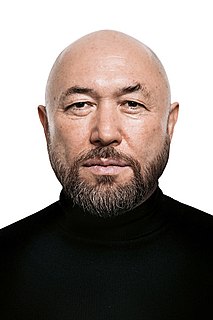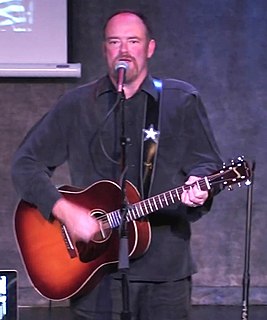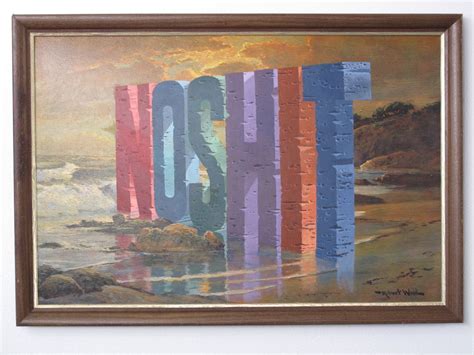A Quote by Robert M. Pirsig
Now he began to see for the first time the unbelievable magnitude of what man, when he gained power to understand and rule the world in terms of dialectic truths, had lost. He had built empires of scientific capability to manipulate the phenomena of nature into enormous manifestations of his own dreams of power and wealth...but for this he had exchanged an empire of understanding of equal magnitude: an understanding of what it is to be a part of the world, and not an enemy of it.
Related Quotes
A new understanding of power is replacing our old understanding of power as the ability to manipulate and control. The old understanding of power has become counterproductive to our evolution. What used to be good medicine has become poisonous. Pursuit of the ability to manipulate and control now produces only violence and destruction.
Step back in time; look closely at the child in the very arms of his mother; see the external world reflected for the first time in the yet unclear mirror of his understanding; study the first examples which strike his eyes; listen to the first words which arouse within him the slumbering power of thought; watch the first struggles which he has to undergo; only then will you comprehend the source of his prejudices, the habits, and the passions which are to rule his life. The entire man, so to speak, comes fully formed in the wrappings of his cradle.
With this book in my hands, reading aloud to my friends, questioning them, explaining to them, I was made clearly to understand that I had no friends, that I was alone in the world. Because in not understanding the meaning of the words, neither I nor my friends, one thing became very clear and that was that there were ways of not understanding and that the difference between the non-understanding of one individual and the non-understanding of another created a world of terra firma even more solid than differences of understanding.
And he began to see the truth, that Ged had neither lost nor won but, naming the shadow of his death with his own name, had made himself whole: a man who, knowing his whole true self, cannot be used or possessed by any power other than himself, and whose life therefore is lived for life's sake and never in the service of ruin, or pain, or hatred, or the dark.
In my terms, I settled for the realities of life, and submitted to its necessities: if this, then that, and so the years passed. In Adrian's terms, I gave up on life, gave up on examining it, took it as it came. And so, for the first time, I began to feel a more general remorse - a feeling somewhere between self-pity and self-hatred - about my whole life. All of it. I had lost the friends of my youth. I had lost the love of my wife. I had abandoned the ambitions I had entertained. I had wanted life not to bother me too much, and had succeeded - and how pitiful that was.
When I first came to Wakefield Cathedral, I thought, 'How does man conceive to build something like this?' It's a building that has transcended time over the centuries, and you appreciate the magnitude of humankind's power and vision. When you're inside, you feel as though the rest of the world doesn't exist.
Many people correctly make the point that our only hope is to turn to God. For example, Charles Lindbergh, who said that in his young manhood he thought "science was more important than either man or God," and that "without a highly developed science modern man lacks the power to survive," . . . went to Germany after the war to see what Allied bombing had done to the Germans, who had been leaders in science. There, he says, "I learned that if his civilization is to continue, modern man must direct the material power of his science by the spiritual truths of his God."







































